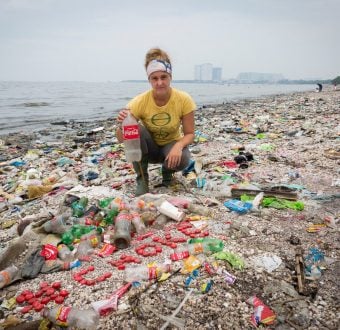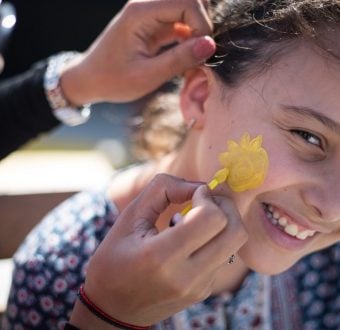The Citarum River in West Java, Indonesia, supports agriculture, water supplies, fisheries, industry, sewerage and electricity. Its the lifeblood of the community around it.
But like so many other waterways in Southeast Asia, the Citarum is sick. Toxic pollution from manufacturing and industry is strangling the river.
This month, across Indonesia, the Philippines and Thailand, Greenpeace activitsts worked with communities to highlight the powerful role they play in the future of their water and put a stop to toxic water pollution. These communities have a right to know what is in their water, what is being pumped into it and a right to not have it contaminated by hazardous chemicals.

Through water patrols, actions on local polluters and even zombie parades in The Phillipines, communities are taking the message to authorities that toxic water pollution is not on.
- In Indonesia, to coincide with Right to Know Day, Greenpeace and other NGO activists delivered 11 bottles of water and industrial waste water samples taken from six areas of Citarum River to the West Java Environmental Management Agency, urging the government to analyse it for presence of hazardous chemicals. The activists have challenged the agency to announce the findings to the public, to fulfill the publics right to know what is in theirenvironment.
- In the Philippines, zombies with speech bubbles joined Greenpeace at the Philippines Department of Environment and Natural Resources to deliver the petition with close to 2837 signatures collected during recent water patrols asking the department to expand the priority chemicals list, speed up the elimination of priority chemicals with specific timelines, and establish aPollutant Release and Transfer Register(PRTR) – a register that provides easily accessible key environmental data.
- In Thailand, Greenpeace activists oversaw community meetings and facilitated community water patrols. Activists also conducted waste water sampling on factory discharges.

